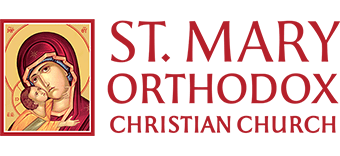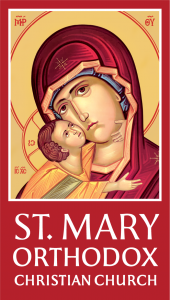The One Pascha By Metropolitan Saba (Isper)
Christians celebrate one Pascha even if they disagree on the date of the feast. Pascha is the Lord Jesus Christ’s Pascha and His resurrection. What accompanies this feast of rituals and traditions, which differ among Christian groups, highlights one thing: namely, the crucifixion and resurrection of Christ. Thus, saying that Christ is “risen” in one church while being “lamented” in another is silly. The schedule of the services such as the Lamentations Orthros, the Paschal Vigil or others may be different within the churches of the same archdiocese. While the Australians are celebrating the Paschal liturgy, North Americans would still be celebrating the liturgy of Great Saturday (Saturday of the Light) because of the time difference between their countries. Liturgical services commemorate the events of crucifixion and resurrection so that the faithful may live their effect in their own lives, rather than to reenact the crucifixion and resurrection!
In societies with several Christian denominations, many talk about the unification of the date of Pascha. No doubt, the faithful’s strong desire for this could enhance their external witness, which is important in their pluralistic societies.
Many don’t know that the same rule is applied in deciding the date of Pascha in both Eastern and Western churches. All Christians follow the rule set by the First Ecumenical Council (325 A.D.). The Holy Fathers of this Council decided to celebrate Pascha on the Sunday which follows the first full moon after the Spring Equinox, the first day of spring.
How did the difference in the dates arise? It is a difference in the type of calendar, not in the rule. In the first fifteen centuries, Christians followed what we know as the old or Eastern or Julian calendar. In the sixteenth century, Pope Gregory XIII of Rome commissioned an astronomical correction of that calendar, which became known as the corrected or Western or Gregorian calendar.
The difference between the two calendars is thirteen days, six hours and a number of minutes and seconds. Thus, the start of spring, according to the current civil calendar, occurs on or about March 21, which is March 8 according to the Eastern calendar. According to the Western calendar, when the full moon occurs between March 21 and April 3, Pascha will be the following Sunday after the full moon. However, in this case, the full moon would have taken place before the start of spring according to the Eastern calendar (which occurs on or about April 3 on the Western calendar). So, followers of the Eastern calendar would have to wait for the following full moon, which could be a month or even later sometimes, to celebrate Pascha. This is the reason behind the long gap between the two dates this year.
What makes this issue even more complicated is that the Christian Pascha (according to the Western calendar) may fall at the same time, or even before, the Jewish Pascha (Passover), while the Christian Pascha, according to our faith, should fall after the date of the Jewish Pascha, not at the same date nor before it.
In 1923, some Orthodox Churches (Constantinople, Antioch, Cyprus and Greece) agreed to follow the Western calendar in celebrating all the fixed feast days (such as the Nativity and the Annunciation). Some say there was a mutual agreement that these Orthodox churches would celebrate the fixed-date feasts according to the Western calendar while the Roman Catholic churches would celebrate Pascha and related feasts (Ascension and Pentecost) according to the Eastern calendar. I am not sure about that agreement. However, in 1944, the above-mentioned Orthodox churches switched to the Western calendar which caused a massive internal division when many of their faithful refused to follow the revised calendar. They considered the change a breach of Tradition and a betrayal of Orthodoxy.
Many of the faithful of the Greek and Cypriot churches separated themselves from their mother churches and broke communion because of this change.
At that time, the Orthodox churches in Eastern Europe could not make any external agreement (being under communist regimes). After the collapse of communism, these churches remained resolute about their traditions, including adherence to the Eastern calendar. Thus, very stringent groups flourished in these churches, and in the churches of the East and West, to resist two things: the proselytizing and
evangelism by Western Christian groups among their faithful; and the spread of a liberalism that contradicts Christian values which has altered societies and denominations.
Every now and then, media outlets spread the news that the Pope of Rome and some patriarchs have agreed on celebrating Pascha on the second Sunday of April or on another fixed Sunday that is inconsistent with the rule of the first Ecumenical Council. If this ever became true, such an agreement could cause new schisms within Orthodox and Roman Catholic churches, because it contradicts the principle behind Ecumenical Councils. According to our faith, decisions of an Ecumenical Council cannot be revised except in another Ecumenical Council.
Such a decision would bring about more confusion and disruption because it contradicts a decision by an Ecumenical Council that has deep roots in Christian doctrine. And rather than sparring about two dates, the sparring would be more intense because of three dates.
What remains for us now is to genuinely pray that the Holy Spirit would move our hearts so that we may collaborate in a synchronous Paschal witness.




